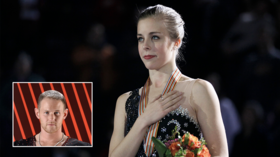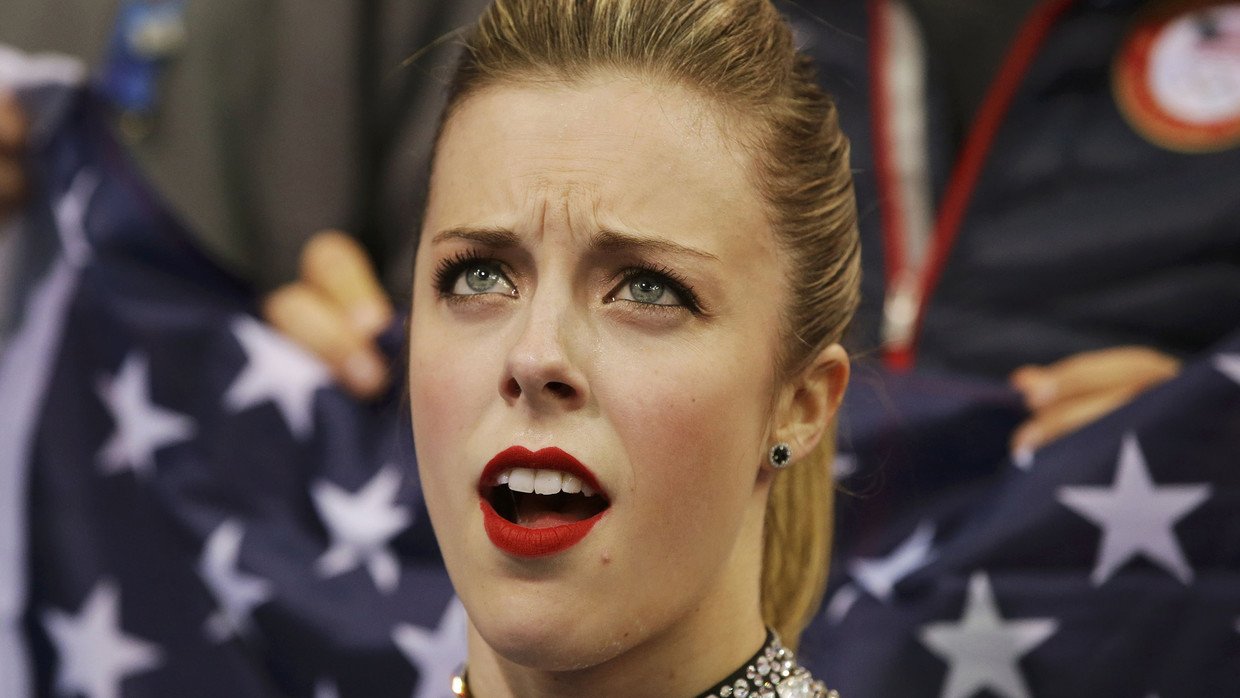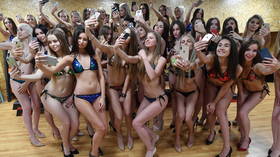No reason to doubt Ashley Wagner’s #MeToo story – but accusing a dead man will always anger people

By waiting until seven months after his suicide to accuse fellow US skater John Coughlin of sexual abuse in 2008, Ashley Wagner has created an avoidable cloud of questions about her story, timing and motives.
Wagner is not the first woman to speak out against Coughlin, who was in the midst of an official national skating federation investigation at the time of his death in January, which his family say contributed to his mental state. But recently-retired Olympic medalist Wagner is by far the highest-profile accuser of the male pair skater, who was never selected for the top competition.
And while Wagner has been widely lauded for the courage of her first-person account, printed on Thursday in USA Today, at least online, if not in print media, there has been a backlash, demonstrating a nuance to a situation that #MeToo advocates often refuse to acknowledge.
Reading Wagner’s own words, it is easy to understand why she did not report the situation at the elite Colorado skating camp at the time.
She was 17 and he was 22, the incident was “ambiguous” to her: Coughlin “crawled” into her bed after a team party –Wagner says it was her first such encounter ever– and began kissing her neck. To deter him, she says she first pretended to be in deep sleep, then that she was waking up, but he did not stop, groping her whole body. When she finally opened her eyes and pulled away his “invading hand” Coughlin “looked at [her] for a few seconds, quietly got up and left the room.”
Wagner says she did not want to speak out against a popular fellow athlete, or “be known in figure skating as the athlete who would cause trouble,” or even for her parents to find out, as they'd be “mad” on discovering that their teen daughter was at a party.
But most importantly, Wagner was not sure she’d been abused at all, acting as if “nothing happened” and thinking she’d “misinterpreted” the situation, as “no one had explained consent” to her. With the “knowledge and empowerment” of #MeToo, it is now “clear” Wagner had been “sexually assaulted,” and wants to help other teenagers avoid her fate.

While all this is understandable on a human level, there is arguably nothing particularly brave about what Wagner is saying, nor should she be unequivocally lionized for doing the right thing now, when she didn't do it when it mattered more.
Brave people speak out when they see wrong, particularly if they fear that wrong may be perpetrated on other victims. Name after name of alleged victims now keeps popping up in connection to Coughlin. If she’d just said a word to a trusted coach or official – she says she spoke about it to a couple of acquaintances but no more than that – future victims may have been saved, perhaps Coughlin could have been too. Maybe not straight away, but sometime in the intervening 11 years – even #MeToo was two years ago.
Also on rt.com In the wake of the #MeToo movement, Disney cuts scene from Toy Story 2Brave people do not put their selection for a sports event over justice, and do not wait until their retirement to point out predators in their organization. They are not scared of popular people.
Brave people say their piece when the accused still has the ability to reply. They know that it will be a case of he-said-she-said and two views of a borderline situation, but you must speak the truth. They take the risk of being challenged, but do not wait until the other person is dead so that they can put forward their narrative, conveniently uncontested yet never confirmed. Perhaps Wagner believes that she waited to spare her old colleague, and now he cannot be hurt when his name will become a part of a cautionary tale.
But by waiting so late to make their accounts public, Wagner and former pair partner Bridget Namiotka, who also stayed silent until Coughlin’s death, have created an unsatisfactory situation for all. A limbo of injustice. The victims can never get the definitive verdict. Coughlin’s name can never be cleared or condemned, and will always carry that stigma. His family, already aghast that the investigation against him was dropped unresolved after his passing, will suffer further anguish at hearing about him in another round of humiliating stories. Wagner gets to be questioned as a bandwagon-hopping opportunist rather than a whistleblower, a bystander who launched a late tackle, not a hero.
Though Wagner herself says that ”she does not see herself as a victim,” that automatic cachet and exposure she has now been granted in the media for telling all is familiar in multiple #MeToo cases. But if the movement is to engender lasting behavioral change across society, the genuine victims opening up must not just be praised, but pushed to report crimes immediately. And warned that ,if they do not, they will only let perpetrators escape, their trauma linger, and their credibility suffer.
By Igor Ogorodnev
Igor Ogorodnev is a Russian-British journalist, who has worked at RT since 2007 as a correspondent, editor and writer.















